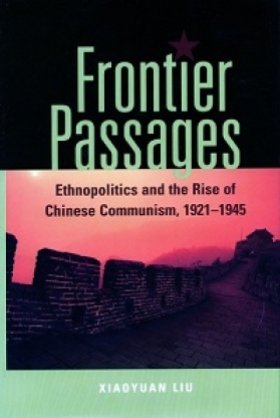Frontier Passages: Ethnopolitics and the Rise of Chinese Communism, 1921-1945

-
In this pathbreaking book, Xiaoyuan Liu establishes the ways in which the history of the Chinese Communist Party was, from the Yan’an period onward, intertwined with the ethnopolitics of the Chinese “periphery.” As a Han-dominated party, the CCP had to adapt to an inhospitable political environment, particularly among the Hui (Muslims) of northwest China and the Mongols of Inner Mongolia. Based on a careful examination of CCP and Soviet Comintern documents only recently available, Liu’s study shows why the CCP found itself unable to follow the Russian Bolshevik precedent of inciting separatism among the non-Han peoples as a stratagem for gaining national power. Rather than swallowing Marxist-Leninist dogma on “the nationalities question,” the CCP took a position closer to that of the Kuomintang, stressing the inclusiveness of the Han-dominated Chinese nation, “Zhonghua Minzu.”
Author
 Xiaoyuan LiuFormer Fellow;
Xiaoyuan LiuFormer Fellow;
David Dean 21st Century Professor of Asian Studies at Corcoran Department of History, University of Virginia



